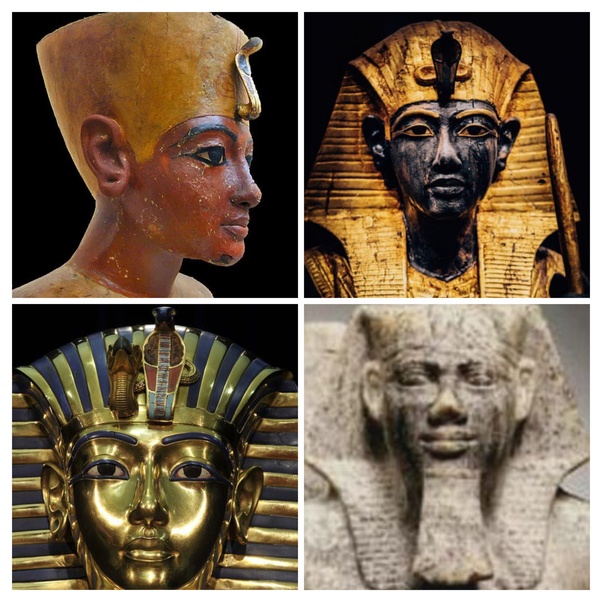The history of Egypt 🥵🇪🇬
 |
Egypt, a country located in northeastern Africa, has a long and fascinating history that dates back to ancient times. Here's a brief overview of the history of Egypt:
Ancient period (c. 3100 BCE – 332 BCE): Ancient Egypt is known for its advanced civilization, impressive architecture, and contributions to mathematics, astronomy, and medicine. The civilization emerged around 3100 BCE when King Narmer united Upper and Lower Egypt and established the first dynasty. The Old Kingdom (2686–2181 BCE) saw the construction of the pyramids at Giza, while the Middle Kingdom (2055–1650 BCE) was a time of stability and expansion. The New Kingdom (1550–1070 BCE) was marked by great pharaohs such as Ramses II and Tutankhamun. During this period, Egypt expanded its territory and became a major power in the region.
Persian, Greek, and Roman periods (525 BCE – 395 CE): In 525 BCE, the Persian Empire conquered Egypt. Later, Alexander the Great conquered Egypt in 332 BCE, and the Ptolemaic dynasty (323–30 BCE) ruled Egypt under Greek influence. The Romans conquered Egypt in 30 BCE, and it became a province of the Roman Empire. During this period, Egypt continued to be a significant cultural and economic center.
Islamic period (641 CE – 1517 CE): In 641 CE, Arab armies conquered Egypt, and Islam became the dominant religion. The country became a center of Islamic scholarship, and Cairo became a significant cultural and intellectual center. During this period, Egypt also saw the rise and fall of various dynasties.
Ottoman period (1517–1867): In 1517, the Ottoman Empire conquered Egypt and ruled the country until the 19th century. During this period, Egypt became an important center of trade and commerce.
Modern period (1867–present): In the late 19th century, Egypt became a British protectorate and gained independence in 1922. Since then, Egypt has experienced political turmoil, including the overthrow of the monarchy in 1952 and the establishment of a republic. Egypt also played a significant role in the Arab-Israeli conflict and has made significant progress in economic and social development in recent years.
Overall, Egypt's history is characterized by a rich cultural heritage, remarkable achievements in science and art, and struggles for independence and progress.
Egypt is a country in North Africa that has a rich and ancient history that spans over 5,000 years. The region has been inhabited since prehistoric times and has been home to some of the world's greatest civilizations. Here is a brief overview of the history of Egypt:
Ancient period: The history of ancient Egypt can be divided into three major periods - the Old Kingdom, the Middle Kingdom, and the New Kingdom. The Old Kingdom saw the rise of the pharaohs and the construction of the great pyramids at Giza. The Middle Kingdom saw a period of political stability and cultural advancement. The New Kingdom saw the expansion of the Egyptian empire and the reign of famous pharaohs such as Hatshepsut, Akhenaten, and Tutankhamun.
Greek and Roman period: In 332 BCE, Alexander the Great conquered Egypt and established the city of Alexandria. After Alexander's death, Egypt came under the rule of the Ptolemaic dynasty, which was of Greek origin. In 30 BCE, Egypt was annexed by the Roman Empire, and it remained under Roman rule for several centuries.
Islamic period: In the 7th century, Arab armies conquered Egypt, and Islam became the dominant religion. The period saw the rise of the Fatimid Caliphate, which established its capital in Cairo and made significant contributions to the fields of architecture, science, and culture.
Modern period: Egypt came under British colonial rule in the 19th century and gained independence in 1922. The country saw significant political and social upheavals in the 20th century, including the overthrow of the monarchy in 1952 and the rise of President Gamal Abdel Nasser's regime. Egypt played a significant role in the Non-Aligned Movement and the Arab-Israeli conflict. In recent years, the country has undergone political and social transformations, including the Arab Spring uprisings of 2011.
Overall, Egypt's history is characterized by a legacy of great civilizations, cultural achievements, and periods of political and social upheaval. The country's ancient monuments and artifacts continue to attract millions of tourists each year, making it one of the world's most popular tourist destinations.












